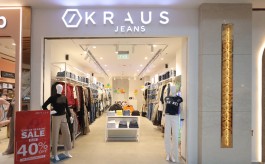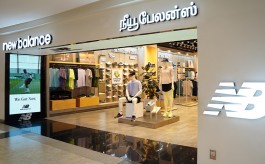FDI rules may stump even Indian chains
By Disha Baruah | Vjmedia Works | January 24, 2014
Since allowing FDI in multi-brand retail has been left to the states, Indian companies may not benefit as foreign investors are wary of the politics
 When the Arvind Kejriwal-led Aam Aadmi Party (AAP) government in Delhi last week overturned the earlier
Congress administration's decision to allow foreign-owned multi-brand retailers
in the state, it dealt a severe blow to the United Progressive Alliance
government's grand plans to get foreign investment in the sector. The AAP argument was that
it would impact the small retailer and the corner grocer - the aam aadmi
shopkeeper. But the move will not only affect foreign investment, it is also a
setback to the hope that the country's supply chains would become more
efficient with global know-how. The decision will also affect the plans of
Indian retail chains to get foreign direct investment, or FDI, and scale up their business.
When the Arvind Kejriwal-led Aam Aadmi Party (AAP) government in Delhi last week overturned the earlier
Congress administration's decision to allow foreign-owned multi-brand retailers
in the state, it dealt a severe blow to the United Progressive Alliance
government's grand plans to get foreign investment in the sector. The AAP argument was that
it would impact the small retailer and the corner grocer - the aam aadmi
shopkeeper. But the move will not only affect foreign investment, it is also a
setback to the hope that the country's supply chains would become more
efficient with global know-how. The decision will also affect the plans of
Indian retail chains to get foreign direct investment, or FDI, and scale up their business.
Take the example of Bharti's EasyDay. It's pan-India spread of 212 stores makes it a
promising investment for any international chain. Organised retail is a small
part - less than 10 per cent - of overall retail, which leaves a huge potential
for growth. Walmart, the world's largest retailer which was supposed to
buy into EasyDay, has broken off with Bharti. Foreign retailers should have
been falling over each other to acquire a stake (they are allowed up to 51 per
cent) in the Indian retailer. But careful scrutity shows why it would be
prudent to wait. Take EasyDay, for instance. Of its 212 stores, only 78 are in
Congress-ruled or FDI-friendly states, making it about 36 per cent of the
total. Of these, 45 are in Haryana and six in Maharashtra - states that will go
to the polls later this year. Given the wave of populism sweeping the country,
it is possible that the two states may alter their stands on FDI in multi-brand retail. Thus, EasyDay would be left with just
27 stores, or 12 per cent of the total, in states which are pro-FDI (at least
for the next few years). This should make any investor think twice before
pumping funds in EasyDay. (STATE-WISE LOCATION OF RETAIL STORES)
When the United Progressive Alliance opened up multi-brand retail for FDI in
September 2012, it said that every state would be free to decide whether or not
to allow foreign-owned retailers there. This was done to build political
consensus for the move. But the government failed to anticipate how this would
backfire. State after state ruled by the Bharatiya Janata Party, which counts
shopkeepers among its traditional voters, began to exercise the veto. Punjab,
ruled by BJP ally Shiromani Akali Dal, had encouraged foreign-owned wholesalers
but said no to foreign-owned retailers. "They (the wholesalers) are
procuring everything locally. And the local retailers are benefiting from them.
So, rather than competing with the local traders, it is complementing
them," Punjab Deputy Chief Minister Sukhbir Badal had told Business
Standard some time back.
More reversals may follow
What really seems to have unnerved foreigners is the Delhi government's about
turn. Rajasthan, where the Congress lost in the recent Assembly elections to
BJP, too is likely to oppose the multi-brand FDI policy. Union Commerce &
Industry Minister Anand Sharma, on his part, has attempted to assure investors
by stating that no state has the right to reverse its decision on the FDI
policy. But as a consultant who tracks retail argues, current political
uncertainties are too much of a hurdle for investors, irrespective of what the
minister says. "There will be a new government at the Centre in just a few
months. So, who will risk an investment at this juncture?" This goes both
ways as seen in the decision taken by the Karnataka government to change its
"no" to "yes" last year after power transferred to the
Congress from BJP.
A common problem
EasyDay is not the only example of a domestic chain which may face hurdles if
it were to look for an overseas partner. The Mukesh Ambani-led Reliance
Retail's food and groceries business, Kishore Biyani's Big Bazaar and Aditya
Birla group's MORE too have a small fraction of their total stores in states
that support foreign investment in retail. In the case of Big Bazaar, around 70
out of its 165 stores, or 42 per cent, are in FDI-friendly states. But, if the
poll-bound states of Congress-ruled Andhra Pradesh, Maharashtra and Haryana are
kept out, the number falls to just 25, or 15 per cent of the total. Reliance
Retail has 74 of its 302 stores, or 24 per cent, in FDI-friendly states.
Leaving out the states which will have elections this year, the number drops
drastically to just 16, which is only 5 per cent of the total. The Aditya Birla
chain presents a unique scenario: all the FDI-friendly states where its stores
are located (Andhra Pradesh, Maharashtra and Haryana) are slated to have
elections. The three states account for 148 of its 394 stores, or 37 per cent.
If these states were to reverse their earlier decisions, the group would be
left with no store in a FDI-friendly state.
Location matters
So, while these domestic retail chains are potential Indian partners for
foreign players, their attractiveness fades away when seen in the context of
the location of the stores. It's a different matter that both Future group and
Reliance Retail have maintained they are not looking for foreign investment.
Still, Tesco will invest $110 million, or close to Rs 700 crore, for a 50 per
cent stake in Tata group's Trent Hypermarket. But there's a catch: the UK-based
retailer has said in its application that it will invest in only Maharashtra
and Karnataka, both Congress-ruled and FDI-friendly states. The two-state
strategy works for Tesco as Trent's Star India Bazaar has the majority of its
stores in Maharashtra and Karnataka. The first foreign entrant in multi-brand
retail still runs a risk in Maharashtra, which is scheduled for Assembly
elections at the end of this year and may just see a change in government and reversal
in retail FDI policy. However, what will work for Tesco may not work for
others, points out Arvind Singhal, chairman of Technopak Advisors, as new
investors will be more wary of investing in the light of policy reversals by
the states.
That said, the buzz is getting stronger that French retail chain Carrefour is
preparing to file an application for entry in multi-brand retail. It is also
said to be in talks with potential Indian partners. Carrefour entered the cash
& carry (wholesale) segment in December 2010 and runs five stores in the
country. Walmart, which was expected to be the first to apply for multi-brand
but has now been left behind, is busy organizing its cash & carry business
after splitting with Bharti and putting in place a new India entity.
Experts point out that at a time when the two largest international chains -
Walmart and Carrefour - are without Indian partners and many domestic retailers
are looking for foreign investment, the state-by-state rule has emerged as the
biggest hurdle. The uncertainty around a particular state's decision and
reversal of policy after each assembly election will stand in the way of any
serious foreign investment. This, according to them, could be a bigger
hindrance than even the rule for mandatory local sourcing. Under it, retailers
are required to source 30 per cent of their merchandise from small local
suppliers. Walmart has asked the government to reduce the quantum from 30 per
cent. The group's Asia chief, Scott Price, had last year said that the policy
was not feasible.
Where the unpredictability of rules and regulations in India's very political
economy are concerned, the more things change, the more they remain the same.








